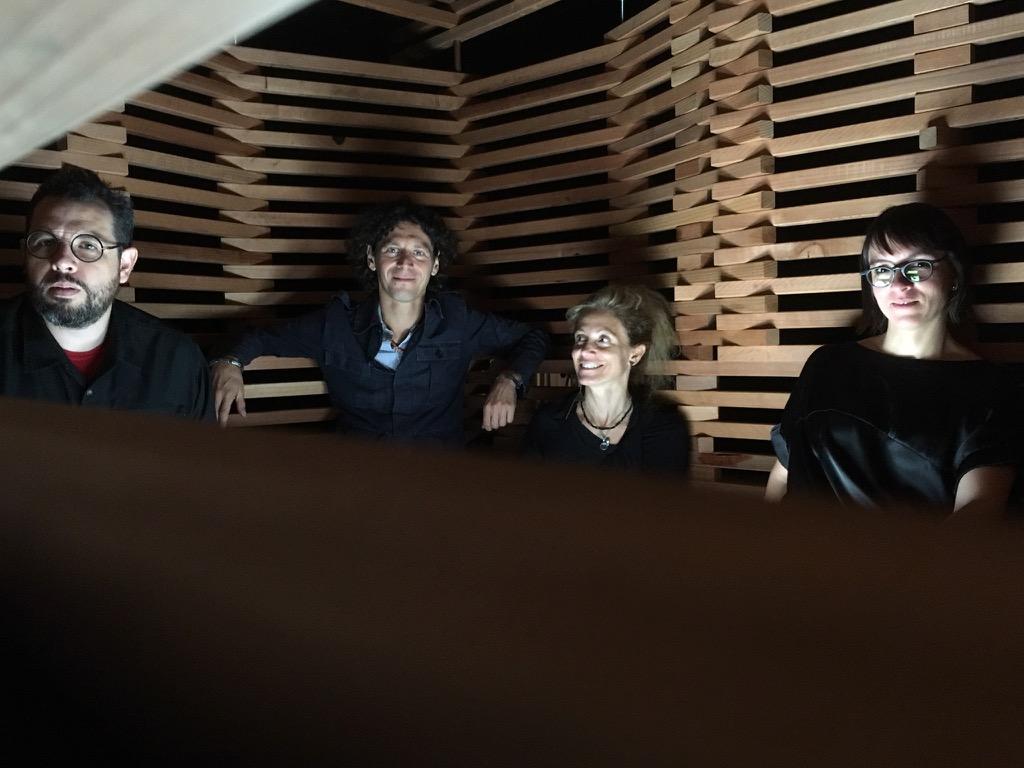Cohabitation Strategies is a non-profit cooperative dedicated to the understanding of complex urban processes through action research as well as the creation of participatory frameworks assisting communities to envision and transform their own living environments. Co-founders Lucia Babina, Emiliano Gandolfi, Gabriela Rendón, and Miguel Robles-Durán have collaborated with governments, municipalities, art institutions, community groups and activists to facilitate transformative urban interventions and to bring about social and spatial change. In the past decade, the cooperative has produced work in cities across Europe and in North and South America. Recent projects have included Food Circle/Collective Kitchen in Arles, France, investigating food cycles and food accessibility; Playgrounds for Useful Knowledge, employing play and performance to regenerate just and sustainable forms of collective inhabiting in Philadelphia; Uneven Growth: Tactical Urbanisms for Expanding Megacities, a project commissioned by MoMA in New York City addressing uneven development through the design of a new public housing program involving housing cooperatives and community land trusts; and Comfort Zones - Behind the Scenes, a year-long experimental research study of the university campus in Mississauga, Ontario. Leading the workshop are two founding members of Cohabitation Strategies, Lucia Babina and Gabriela Rendón.
Lucia Babina is a cultural activist focused on sustainable ways of cohabitation and coexistence. Her aim is to reflect on the current global unevenness and injustice by means of collective and artistic process. She is a founding member of Cohabitation Strategies and co-founder of iStrike in Rotterdam, an environmental organization aimed at creating platforms of analysis, comparison, and international exchange. She is co-author of The Cook, the Farmer, His Wife and Their Neighbour as part of Stedelijk Goes West, (Amsterdam, 2009) and has been in residence at the Atelier LUMA in Arles. In Paris, she is collaborating with Morland Living Lab on new work in 2019.
Gabriela Rendón is an architect and urban planner committed to social and spatial justice. Her research interests include urban decline and restructuring of immigrant neighbourhoods, community planning and design, participatory action research, women-led urban community practices, solidarity urban economies, and housing cooperative models. She is a founding member of Cohabitation Strategies and an Assistant Professor of Urban Planning at Parsons School of Design / The New School in New York City. She has a PhD in Spatial Planning and Strategy and has taught graduate urban studies at Delft University of Technology in the Netherlands.




